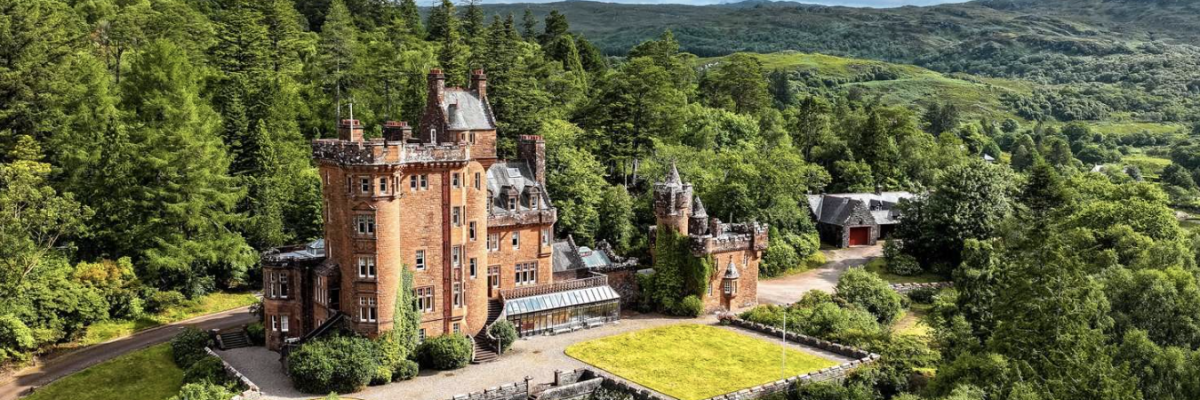Freehold or Leasehold what do they mean?
- Lee Wisener
- 22-10-2022
- Guides
Wherever purchasing a property in the UK it will usually be on a Leasehold or Freehold basis. It may even be a Leasehold with a share of the Freehold. What does this all mean for the purchaser? Let's find out.

Table of contents
It really does depend on where in the UK property is located that will matter whether it could be Freehold or Leasehold. In Scotland, there are terms such as Feuhold and Heritable Property that I will cover as well. It all comes down to understanding the terminology, other than that it's not that complicated in most cases.
This is not going to be a really detailed look at the difference, enough for understanding.
Freehold
With Freehold the purchaser obtains ownership of two key parts.
- The Land
- The property built on that land
That is pretty much it, everything is owned by the purchaser. That may seem somewhat obvious but not so much when we consider leasehold.
Leasehold
With Leasehold, the purchaser obtains ownership of only one part.
- The property built on the land
Ok, but what about the land? Well, the purchase does not own the land, it belongs to someone else. No particular person, anyone can own the land in the case of a Leasehold property. The person or company that owns the Land owns the Freehold.
When purchasing a leasehold property the purchaser is never the owner of the land and only the owner of the property for as long as the lease is valid. If the lease runs out the ownership of the property transfers to whoever owns the Freehold.
Length of a lease
The length of a lease will vary. On new build properties, it is usually 999 years. This is considered as good as Freehold.
On other properties, the lease may well have started at 999 years and the length remaining at the time of purchase will depend on how long ago it was granted. In those cases, I rarely see a lease with under 800 years remaining.
In areas of London, more notably Prime Central locations the leases can be very small. It is usual to see remaining terms less than 100 years and not uncommon under 50 years.
Extending a lease
Importantly there should be no barrier to extending a lease. It is generally recommended that a lease with less than 90 years remaining should be extended. Under the leasehold reform, Housing and Urban Development act 1993 all homeowners are entitled to extend their lease by 90 years at fair market value. In some cases, a lease cannot be extended unless the property has been owned for at least 2 years.
Caution! Marriage Value
When a lease drops below 80 years it can become more costly to renew. With less than 80 years remaining the Freeholder is entitled to half of the increase in the property value from the point the lease was issued. Not only would the owner need to pay that but also the fee for extending the lease. Known as the marriage fee as it marries the two costs together.
The cost to extend a lease will of course vary and will be dependent on multiple factors. The main factors are going to be:
- The term left on the existing lease
- The number of years the lease is being extended
There is no simple table or formula I can offer for the cost. I can give a couple of examples seen recently.
- London flat, valued at £255,000 with a 93-year current lease. Extended by 90 years for £5,750.
- London flat, valued at £12.5m with a 47-year current lease. Extended by 90 years for £271,500.
The Leasehold reform states that an eligible owner cannot have their request to extend a lease refused.
Ground Rent
The Leasehold system in England and Wales dates far back to the time of William the Conqueror. He claimed all land was owned by him. The land was carved up into estates which were then granted to the wealthy. They in turn allowed people to live on the land. They paid Rent for the ground they owned, hence the term Ground Rent. This system has carried on to modern times.
Even though a purchaser could be paying anything up to £50m for a property on a leasehold basis they may still have to pay rent to the owner of the land.
How much ground rent is paid varies and is always disclosed at the time of purchase. In most cases, it is often referred to as a peppercorn rent. This is a legal term for a token amount. That could be £10 per year.
Care should be taken as leases can have some very expensive ground rent terms. Some start at say £100 per year and double every 5 years for the duration of the lease. After 20 years the cost just for ground rent would be £800 and it won't stop there. For others, it may only double every 20 years. If 100 years have already passed since the start of the lease it may already be quite high.
On properties where there is a doubling of ground rent, many lenders will refuse to lend. Care has to be taken. There have been reports of solicitors not advising purchasers of doubling ground rent on lower value purchases < £500k. The ground rent in 50-75 years means it would be so high an owner at that time may not be able to sell it as purchasers would not be willing to pay the high charges.
Leasehold and share of the Freehold
It is possible, that a property can be purchased on a leasehold basis but also benefit from a share of the freehold. This is almost entirely related to purchasing a flat.
Collectively each owner of a flat in the building owns the building and the land. There are a couple of ways the freehold can be managed.
Limited Company
Establish a limited company if there are more than 4 flats. The company is the registered owner of the Freehold and the owners of the flats become equal share directors. This does mean managing a company. There are pros and cons, too much for this article.
Tenants in Common
Every owner holds a share of the freehold in their personal name as (link: https://mortgageblog.uk/blog/joint-tenancy-tenancy-in-common-benefits text: tenants in common). So say 4 flats, that is 25% ownership for each. Seen sometimes as a riskier option that the first option but less costly.
As always there are pros and cons with a shared freehold, some are listed below.
Some advantages
- A higher standard of maintenance, all owners are invested and should want to best for the property.
- No or very low ground rent.
- No cost other than legal fees to extend the lease up to 999 years.
- Low service charges.
Some disadvantages
- Low service charges are good but if something costly needs repaired on the building you may get a large one-off bill.
- May not be able to rent a property unless the other freeholders agree.
- Headaches arranging insurance and general administration of the building.
Leashold reforms
There have been a lot of positive movements made to reform the leasehold system in England & Wales.
Ensuring leaseholders can extend their lease for a reasonable period and at reasonable market rates is one.
Another is that for new properties starting on 30th June 2022 ground rent has been banned. This does not help existing property owners, however, some property builders are revising lease terms to stop instances of doubling ground rent. Avivia, Permisson, Wimpey, and others are reverting ground rents to what they were at purchase.
There are more changes coming. Plans to allow leaseholders to extend a lease up to 990 years with no ground rent. And a much missing option to provide an online calculator to find out how much it would cost to purchase the freehold of a property or calculate a lease extension is coming.
Scotland
For those in Scotland, the system is far simpler. All properties are purchased on a heritable interest basis. The same as Freehold in England and Wales. The land and property are owned, there is no ground rent or other charges.
Summary
There we go, I didn't want to get any deeper into this subject otherwise we get into specifics it gets quite complex and detailed. Hopefully if you were not aware or clear on the differences you are better informed now :)
Lee Wisener
I am the Admin of this site. I created it from scratch, and I made all the content. The bottom line is that I'm it if you're looking for the person responsible! We now have a new support system, please log in and use it rather than email where possible.





Comments (0)
Want to comment on this page? Login or Register.